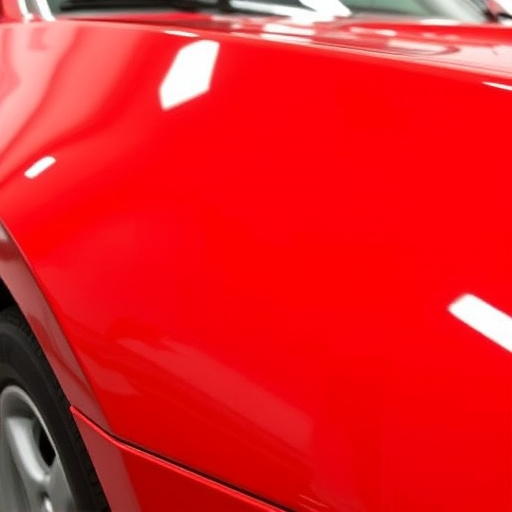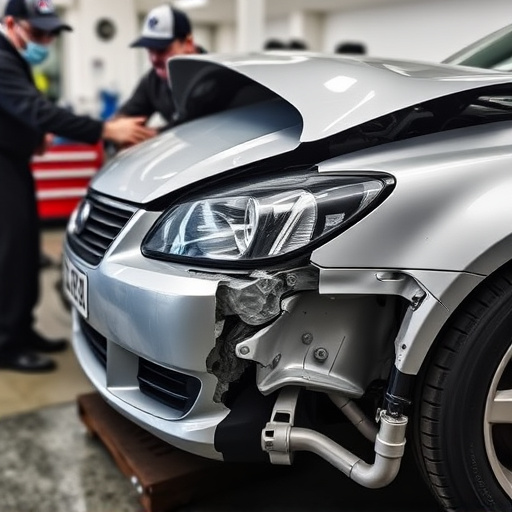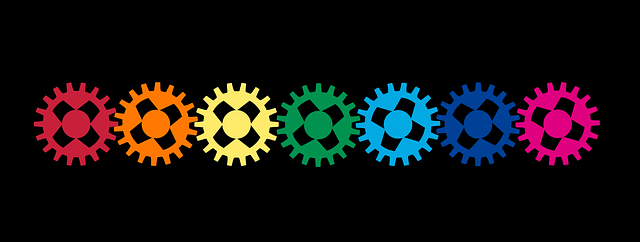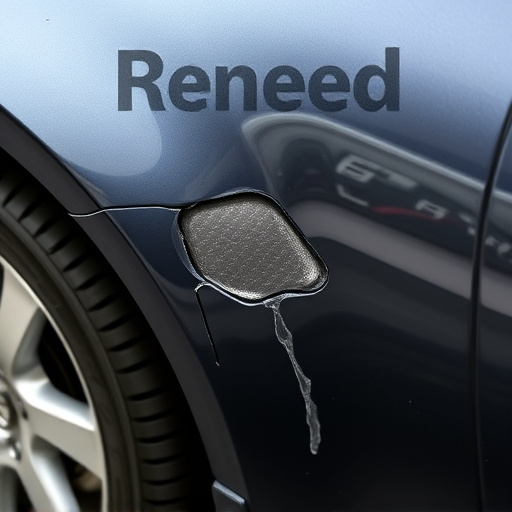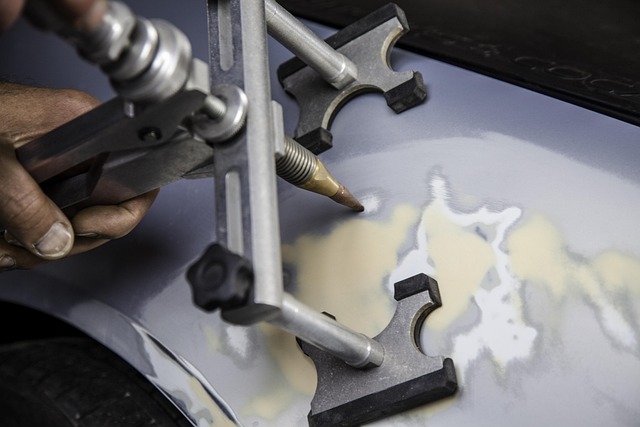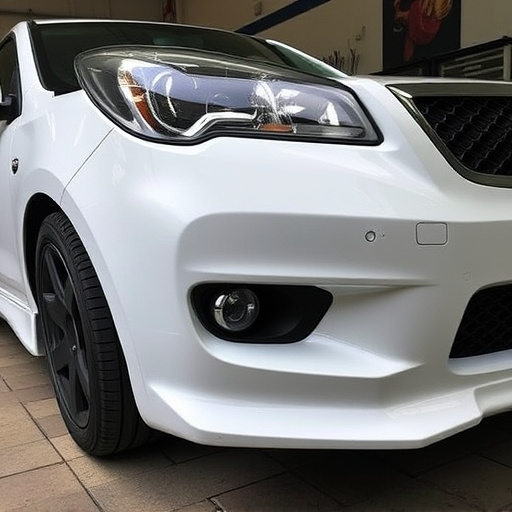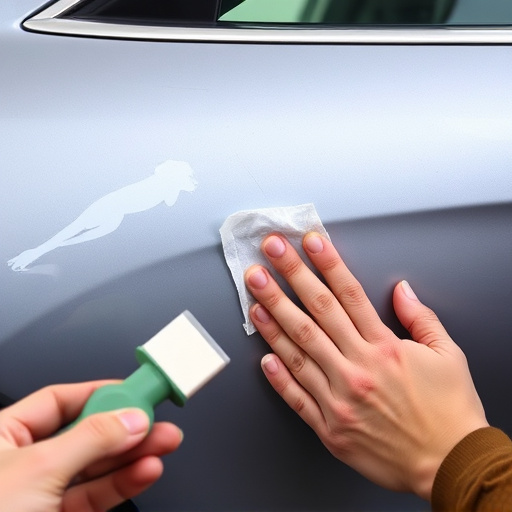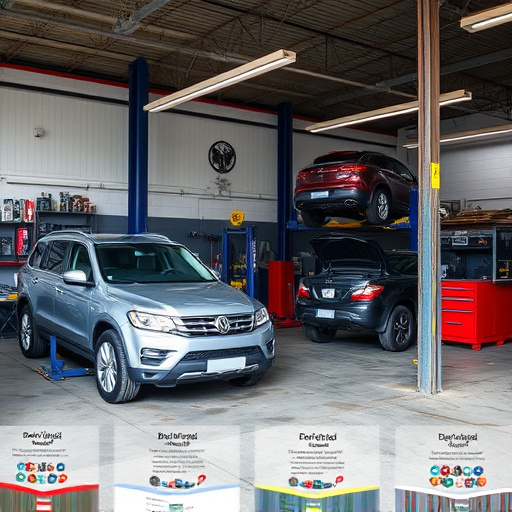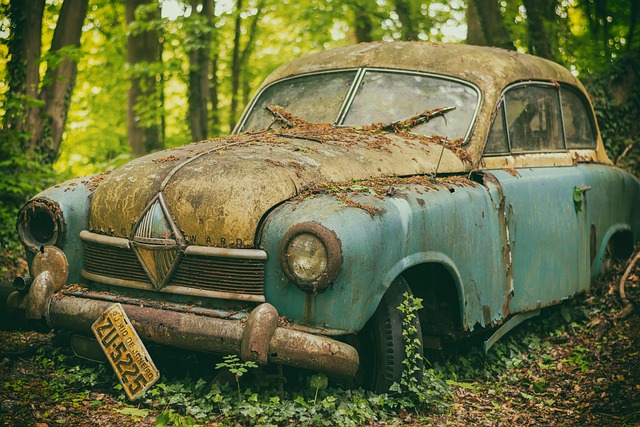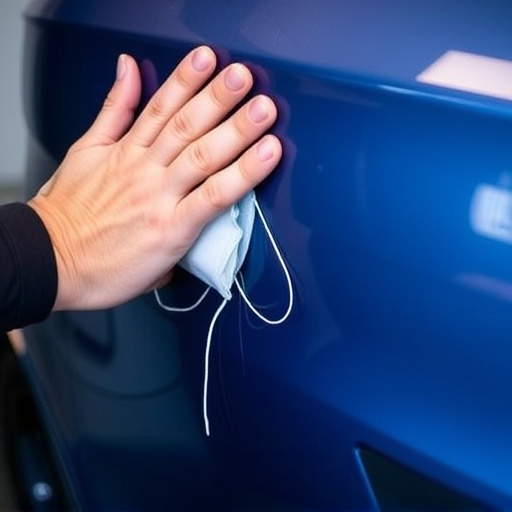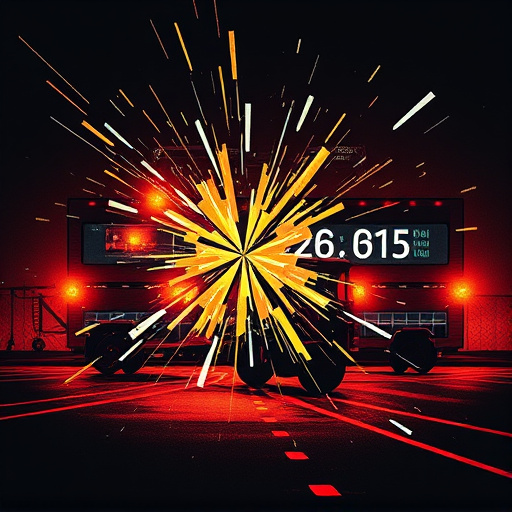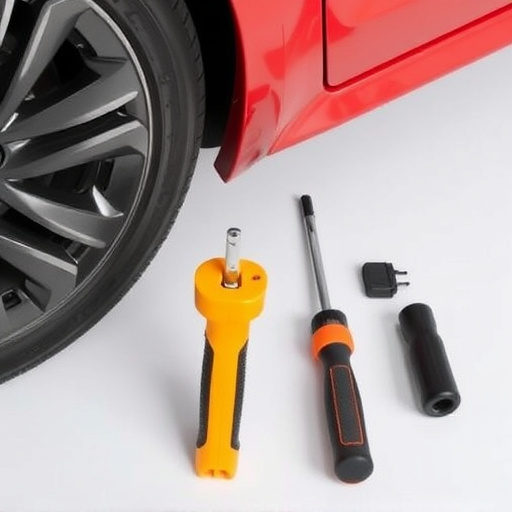AI transforms automotive paint technology through machine learning, ensuring unparalleled quality and consistency. By analyzing data during painting, AI detects variations and makes precise adjustments. This automation reduces human error, enhances efficiency, and enables accurate replication of vintage paints. Continuous data collection allows manufacturers to refine processes over time, revolutionizing the landscape of automotive paint technology and minimizing future autobody repairs related to paint.
In today’s advanced automotive landscape, Artificial Intelligence (AI) is revolutionizing every aspect of manufacturing, including automotive paint technology. This article delves into how AI is transforming the way vehicles are painted, focusing on three key areas: enhancing paint quality and consistency, automating paint application processes, and implementing predictive maintenance for extended durability. By leveraging machine learning algorithms and data analytics, automotive manufacturers can achieve superior outcomes, streamline production, and extend the lifespan of vehicle finishes.
- Enhancing Paint Quality and Consistency with AI
- Automating Paint Application Processes
- Predictive Maintenance for Longer Durability
Enhancing Paint Quality and Consistency with AI

AI is revolutionizing automotive paint technology by significantly enhancing paint quality and consistency. Through advanced machine learning algorithms, AI systems can analyze a vast array of data points during the painting process, from surface preparation to coating application. This enables them to detect even slight variations in paint composition and application techniques, ensuring each vehicle receives an exact match to specified standards. By automating these intricate tasks, AI reduces human error, resulting in more uniform and aesthetically pleasing finishes.
Moreover, AI-driven systems can adapt to different models and make precise adjustments based on unique vehicle characteristics. This is particularly beneficial for classic car restoration projects where maintaining historical accuracy is paramount. For example, AI algorithms can learn and replicate the original paint recipes and application methods used on vintage vehicles, ensuring a seamless and authentic restoration. Additionally, AI facilitates continuous improvement by gathering data from each painting session, allowing manufacturers to refine their processes over time.
Automating Paint Application Processes

The integration of AI in automotive paint technology has led to significant advancements in the way vehicle bodies are painted, enhancing both efficiency and quality. AI-driven systems automate various stages of the paint application process, from surface preparation to coating. These intelligent machines can precisely detect and fill gaps or imperfections on car bodies, ensuring a seamless and uniform base for painting.
Through machine learning algorithms, AI robots learn and adapt to different vehicle models, panel shapes, and unique color requirements. This level of customization ensures that collision repair services and automotive repair services benefit from faster turnaround times and reduced material waste. Moreover, AI enables the creation of intricate paint jobs, adding a layer of artistic precision to the once labor-intensive car body repair process.
Predictive Maintenance for Longer Durability

AI is revolutionizing predictive maintenance in automotive paint technology, enabling vehicle manufacturers and autobody repairs shops to anticipate and prevent issues that can compromise the durability of painted surfaces. By analyzing vast data sets from sensor-equipped vehicles, AI algorithms predict when certain components, like paint applications, might fail or require touch-ups. This proactive approach significantly reduces the need for frequent collision repair shop visits and costly emergency fixes.
In addition to extending the life of automotive paint jobs, predictive maintenance also enhances the overall quality control process. By identifying potential problems early on, manufacturers can streamline their production lines and ensure that each vehicle leaving the factory boasts a flawless, long-lasting finish. This level of precision benefits both consumers and collision repair shops by reducing the frequency of future autobody repairs related to paint issues.
Artificial intelligence is revolutionizing automotive paint technology, offering enhanced quality, consistency, and durability through automated processes and predictive maintenance. By leveraging AI, manufacturers can streamline production, reduce waste, and ensure every vehicle leaves the factory with a flawless finish. This advanced technology promises to shape the future of the industry, making automotive paint application more efficient, precise, and sustainable.
